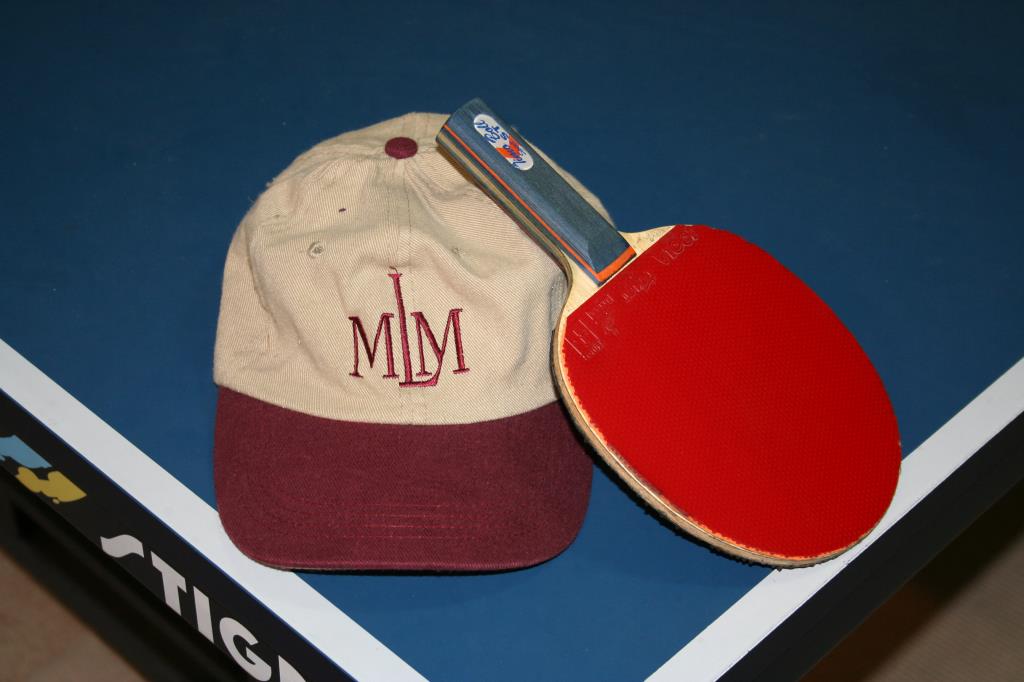I Think, Therefore I Loop Better

How many times have you heard an experienced athlete or commentator remark about a sport – “This game is 80% (or more) mental”? Quite a bit I would guess. Table tennis is no different from many of these other sports. When two players get out there on the table, quite often it is what is going on between their ears which has the final say on what happens on the scoreboard.
Assuming for the moment that the mental side of things in ping-pong is important, how much mental training are you doing? If you are like most people, the answer is probably none.
Think about that for a second or two. Most likely 90% or more of your opponents aren’t doing any real mental training at all. So if you put in just half an hour a week, in a year’s time you’ll have done an extra 26 hours of mental training that your opponents haven’t. Do you think this might help to give you an extra edge over your competition?
Benefits of Mental Training
Done right, mental training should help you improve in the following areas, some of which I’ve written about elsewhere:
- Your ability to play well under pressure and avoid choking
- Your ability at scouting opponents and noticing what is important
- Your ability to analyze an opponent’s play and adjust accordingly during a match
- Your ability to analyze your own play and adjust accordingly
- Your ability to shut out distractions and concentrate fully on each point
- Your ability to be confident of a consistent level of performance at any time.
Mental Training Basics
So how do you go about training your mind for table tennis? Like you, this was once a topic that I had little knowledge about. Sure, I knew about the use of tactics during a ping-pong match, but this was something different. Information on mental training relevant to ping-pong was hard to find. So how could I improve my mental conditioning?
While thinking about this dilemma, I was fortunate enough to be directed by Sean O’Neill, 5 time US National Champion and 2 time Olympian, to a book he found helpful on the subject. The book was called “With Winning In Mind”, written by Olympic Champion and two time World Champion in shooting, Lanny Bassham. I have found this book to be enormously helpful in improving my mental conditioning for table tennis, and while I don’t want to repeat whole chunks of the book, I’ll briefly mention a couple of points to give you a few things to think about and get started with.
Principle of Reinforcement
Use mental reinforcement to improve your ping-pong game. Mental reinforcement is the idea that the more you think about, talk about, and write about something happening, the more likely it is to happen.
Let’s face it, if you are often thinking about playing better table tennis, or hitting that forehand loop perfectly, your brain’s subconscious should also be busily at work, figuring out ways to help. That’s got to be a good thing, right?
Use Mental Rehearsal (Visualization)
By picturing what you want to happen before you actually do it, you can get your imagination working for you. It’s been written that the brain can’t tell the difference between actually doing something and actively picturing it – the same parts of the brain become active.
So why not picture yourself doing something successfully (such as hitting that forehand loop) in the comfort of your own home? Or imagine yourself at 9-all in the final game, under pressure but playing the last two points perfectly to win the match. Make it as vivid and realistic as possible. Your brain won’t know the difference. And when it becomes a reality, you’ll be better prepared to handle the situation.
Run a Mental Program
If you run a mental program consisting of the same set of pictures of successful performance before each point, it should cause your subconscious to take the appropriate action. Running a mental program also keeps your conscious mind busy doing something positive, which makes it harder to choke or lose concentration.
Conclusion
I can personally attest to the benefits of doing mental training for table tennis. As something you can do in the comfort and privacy of your own home, for just a few minutes a day to get benefits, it’s well worth adding some mental training to your schedule. After all, your competition just might be reading this and deciding that they will!

